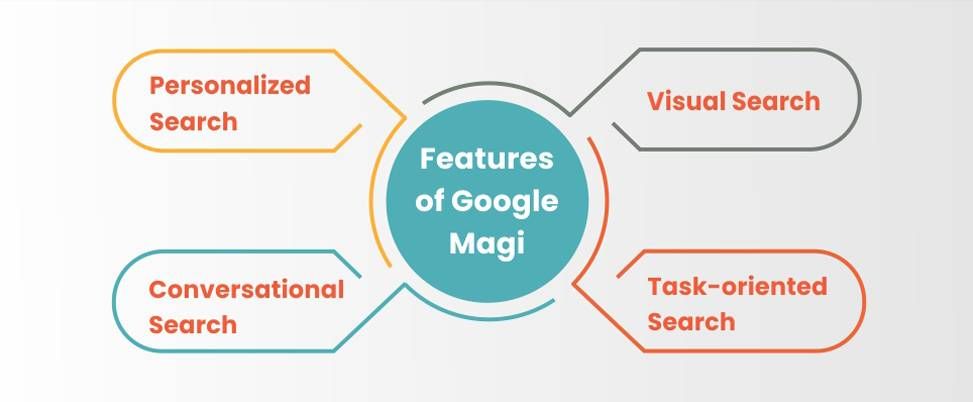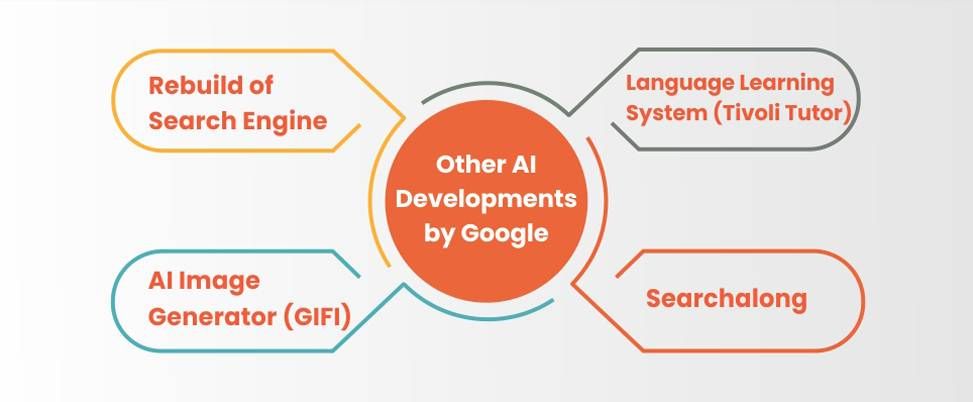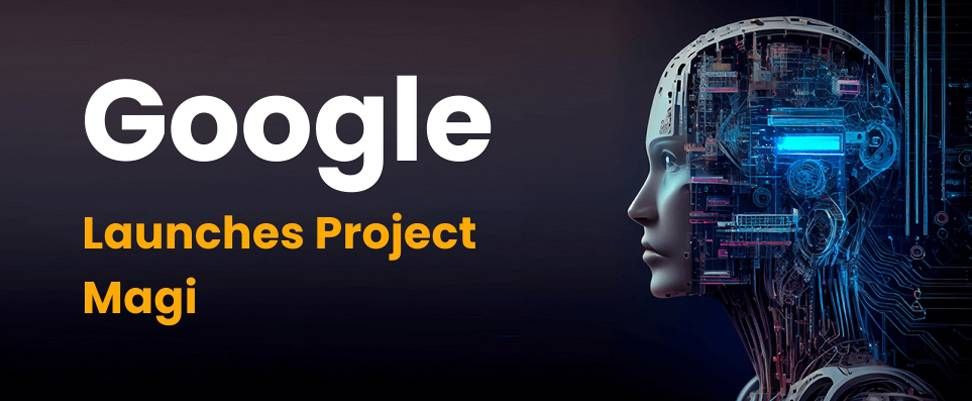Table of Contents
ToggleIntroduction
Google is no stranger to innovation and experimentation. The search engine giant has been constantly evolving and improving its products and services to meet the needs and expectations of its users. However, in recent years, Google has faced some stiff competition from rivals like Microsoft and OpenAI, who have been developing and deploying advanced AI-powered technologies that challenge Google’s dominance in the search market.
The rising popularity of ChatGPT and Bing Drives Google's New Search Engine
Many believe that AI-powered chatbots like ChatGPT and Bing could potentially replace traditional search engines like Google, despite their limitations. This has prompted Google to proactively address the threat posed by these competitors. The potential loss of a $3 billion contract with Samsung created internal panic within Google. The company has been in a frenzy since December, issuing a “code red” in response to the rise of ChatGPT. Microsoft’s collaboration with OpenAI to relaunch Bing in February further intensified the challenges to Google’s longstanding dominance in the search engine market.

Don't miss out on your chance to work with the best!
Apply for top job opportunities today!
What is ChatGPT?
ChatGPT was developed by OpenAI, a research organization co-founded by Elon Musk, and has been adopted by Microsoft to power its Bing with the ChatGPT feature, which allows users to chat with an AI assistant within the Bing search engine. AI tools like ChatGPT are conversational AI systems that can generate natural language responses to any query or prompt.
Google Bard vs ChatGPT
Google’s response to ChatGPT was Bard, a similar conversational AI system that can generate text, code, images, and more. Bard is a ChatGPT alternative and was launched in late 2022 as a standalone product that users can access through a web browser or an app. Bard was designed to showcase Google’s prowess in natural language generation and understanding, as well as its ability to leverage its vast data and resources.
However, Bard was not enough to counter the threat posed by Bing with ChatGPT, which has been gaining popularity and market share among users who prefer a more interactive and personalized search experience.
Suggested read: ChatGPT vs Google Bard – Which is the better AI Tool?
Bing with ChatGPT
Bing with ChatGPT has also been integrated into other Microsoft products and services, such as Cortana, Edge, and Office 365, creating a seamless ecosystem of AI-powered tools.
To regain its edge in the search market, Google has been secretly working on a new project that aims to revolutionize the search experience by combining the best features of Bard and Google Search. This project is called Magi, and it is Google’s answer to Bing with ChatGPT.
Take control of your career and land your dream job!
Sign up and start applying to the best opportunities!

What is Google Magi?
Google Magi is a new AI-powered search engine that is designed to be more personalized, conversational, visual, and human than the current version of Google Search. Google’s AI is based on generative AI technology, which means that it can create new content and information based on user inputs and preferences.
Magi is intended to provide users with a more engaging and intuitive search experience that adapts to their needs and interests over time. Magi can also perform tasks such as completing transactions, generating code, recommending products, and more.
Google Magi is still in development and has not been officially announced by Google. However, according to a report by The New York Times, Google plans to initially release Magi’s features to one million users in May 2023, followed by a wider rollout to 30 million users later in the year.
How is Google Magi different from Google Bard?
| Features | Google Magi | Google Bard |
| Product Type | Enhancement of Google Search | Standalone product |
| Access | Integrated within the Google Search interface | Accessed separately |
| Focus | Provides relevant and useful information | Generates various types of content |
| Content Options | Offers preselected options for products, research, etc. | Generates poems, stories, images, etc. |
| Conversational | Engages in meaningful dialogues with users | Responds to queries and prompts in natural language |
| Understanding | Recognizes user intents and emotions | Responds to prompts without emotional understanding |
| Visual Elements | Can incorporate images and emojis | Primarily text-based responses |
Google Magi is different from Google Bard in several ways.
- First of all, Magi is not a standalone product like Bard, but rather an enhancement of the existing Google Search. This means that users can access Magi’s features through the same interface and platform that they use for Google Search.
- Secondly, Magi is more focused on providing users with relevant and useful information and experiences than Bard. While Bard can generate various types of content such as poems, stories, images, etc., Magi can provide users with preselected options for products, research, and other information based on their search behavior and preferences.
- Thirdly, Magi is more conversational than Bard. While Bard can respond to any query or prompt in natural language, Magi can engage in meaningful dialogues with users and understand their intents and emotions. Magi can also use visual elements such as images and emojis to enhance communication.
How is Google Magi different from Bing with ChatGPT?
| Aspect | Google Magi | Bing with ChatGPT |
| AI-powered search engine | Yes | Yes |
| Natural language generation | Yes | Yes |
| Personalized and conversational search | Yes | Yes |
| Integration | Embedded into core Google Search | Separate feature within Bing |
| Access method | Any query or prompt | Chat icon on Bing homepage or search results |
| Functionality | Answer questions, generate text content | Answer questions, generate text content |
| Additional tasks | Transaction completion, code generation | Limited to text-based content generation |
| Integration with other Google products | Yes | Limited integration with other Microsoft services |
Google Magi is similar to Bing with ChatGPT in some respects but different in others
AI-powered search engines: Both Magi and Bing with ChatGPT are AI-powered search engines that can generate natural language responses to user queries and prompts.
Personalized and conversational: Both Magi and Bing with ChatGPT are also designed to be more personalized and conversational than traditional search engines.
However, there are some key differences between Magi and Bing with ChatGPT as well. One of them is the level of integration between the AI system and the search engine.
- While Bing with ChatGPT is a separate feature that can be accessed through a chat icon on the Bing homepage or within the search results page, Magi is embedded into the core of Google Search and can be accessed through any query or prompt.
- Another difference is the scope of functionality between Magi and Bing with ChatGPT. While Bing with ChatGPT can mainly answer questions and generate text-based content such as jokes, stories, summaries, etc. It can perform tasks such as completing transactions, generating code, recommending products, and more.
- Magi can leverage Google’s other products and services such as Google Maps, Google Shopping, Google Images, and more to provide users with a comprehensive and seamless search experience.
What are some features of Google Magi?

Some of the features of Google Magi that have been reported or speculated are:
- Personalized Search: Magi can learn from user behavior and preferences. It can provide them with preselected options for products, research, and other information that match their needs and interests.
- Conversational Search: Magi can engage in natural language dialogues with users and understand their intents and emotions. It can use visual elements such as images and emojis to enhance communication. For example, if a user asks, “How are you?”, Magi can reply with “I’m doing great
” or “I’m feeling a bit tired
”, depending on its mood and context.
- Visual Search: Magi can use generative AI technology to create new images based on user inputs and preferences. Magi can also analyze existing images and provide relevant information and experiences in real time. For example, if a user uploads an image of a flower, Magi can identify the flower species, provide facts about it, suggest similar flowers, or even generate an image of a bouquet based on the user’s preference.
- Task-Oriented Search: Magi can perform tasks such as completing transactions, generating code, recommending products, and more. Magi can also leverage Google’s other products and services such as Google Maps, Google Shopping, Google Images, and more to provide users with a comprehensive and seamless search experience.
How does Project Magi work?
Project Magi utilizes advanced technologies, including machine learning, computer vision, and spatial mapping, to function effectively. Here’s an overview of how Project Magi works:
- Object Recognition: Project Magi employs machine learning algorithms to recognize and identify real-world objects in real-time. This involves analyzing visual data captured by cameras or sensors and comparing it to a vast database of known objects.
- Machine Learning: Magi’s object recognition capabilities are powered by machine learning models trained on large datasets. These models learn patterns, features, and characteristics of objects, enabling accurate identification and analysis.
- Spatial Mapping: Project Magi utilizes spatial mapping techniques to create 3D maps of physical spaces. By combining sensor data and computer vision algorithms, it can understand the environment and overlay digital content seamlessly onto the real world.
- Data Integration: Magi integrates various data sources, including location-based information, user preferences, and contextual data, to provide personalized and relevant experiences. This allows it to deliver tailored information and interactive content based on the user’s specific needs and surroundings.
- Cross-Device Compatibility: Project Magi is designed to be compatible with a wide range of devices, including smartphones, smart glasses, smartwatches, laptops, and other connected devices. This ensures users can access and interact with Magi across different platforms and devices.
- Real-Time Interactivity: Magi enables real-time interaction with digital content overlaid onto the real world. Users can interact with virtual objects, access information, view multimedia content, and perform various actions based on the context and purpose of the application.
Overall, Project Magi combines advanced technologies to recognize objects, create immersive experiences, and provide real-time interactivity, enhancing users’ interaction with the physical world through augmented reality.
Here are Some Use Cases for Google Magi
- Retail: Interactive product displays providing detailed information about products, including features, pricing, and availability.
- Education: Immersive educational experiences for students to explore complex concepts in a hands-on manner.
- Entertainment: Interactive games and experiences that allow users to interact with digital content in physical spaces.
- Healthcare: Interactive training modules for medical professionals to practice procedures in a safe, virtual environment.
Impact of Google’s Project Magi on E-commerce
The impact of Project Magi on E-commerce is significant and requires a re-evaluation of selling strategies. Here’s a breakdown of how it can affect E-commerce:
Simplified Checkout
With Project Magi, transactions can occur seamlessly through Google, reducing obstacles in the checkout process. However, this may come with the requirement of allocating a portion of the final sale to Google, influencing pricing considerations.
Personalized Search
Google Magi’s emphasis on personalized search means it might become more challenging to capture the attention of new customers. On the other hand, it could become easier to showcase new products to existing customers, as Google tailors recommendations based on individual user preferences.
Product Feed Management
Effective product feed management becomes crucial to avoid penalties or exclusion from search results. Maintaining accurate and up-to-date product information is essential to ensure visibility and relevance.
Enhanced Customer Experience
A positive customer experience gains even more significance with Project Magi. If Google identifies a dissatisfactory purchase experience, it may impact the visibility of your products in future searches. Prioritizing customer satisfaction is key.
Evolution of Advertising and Campaigns
Advertising strategies may undergo changes in response to Project Magi. For instance, Magi might suggest product ideas as part of advertising campaigns. Additionally, search results could display ads directly below relevant answers, offering a powerful means of reaching a receptive target audience.
Project Magi’s impact on E-commerce calls for adaptations in pricing, personalized marketing, product feed management, customer experience, and advertising strategies. By embracing these changes, businesses can leverage the potential of Project Magi to enhance their E-commerce success.
Is Google Magi already released?
Google plans to initially release Magi’s features to one million users in May 2023 in the US, followed by a wider rollout to 30 million users later in the year.
However, some users may have already experienced some of Magi’s features through Project Magi, an initiative to add new AI-based features to the existing Google Search. Project Magi was launched in April 2023 as a beta test for selected users who opted-in for experimental features.
How can we access Google Magi?
There is no official way to access Google Magi yet. Users who want to try out Magi’s features will have to sign up for an invitation through a website that will be launched by Google soon. Users who receive an invitation will be able to access Magi’s features through the same interface and platform that they use for Google Search.
Other AI Developments by Google

Rebuild of Search Engine
- Significant rebuild of Google’s search engine planned
- No specific timeline for the release of the new search technology
- Aiming to enhance search capabilities and user experience
AI Image Generator (GIFI)
- Development of AI image generator called GIFI
- Utilizes artificial intelligence to generate images
- Focus on improving image generation quality and diversity
Language Learning System (Tivoli Tutor)
- Development of a language learning system named Tivoli Tuto0072
- Uses AI techniques to assist in language learning
- Provides personalized learning experiences and resources
Searchalong
- Integration of a chatbot feature called Searchalong
- Aims to integrate chatbot functionality into Google’s Chrome browser
- Provides answers to questions about the current web page
- Similar to Microsoft’s Bing AI sidebar for Edge browser
Our Thoughts
Google Magi is an innovative platform that can revolutionize the way we interact with the world. With its powerful object recognition, spatial mapping, multi-device support, and collaboration tools, Magi has diverse applications across industries. As the competition intensifies, it remains to be seen which search engine giant will emerge victorious. Nonetheless, Google’s efforts towards a new search engine signify a positive move in preserving its position as the leading force in the search market.
Frequently Asked Questions
Google Magi is an augmented reality (AR) platform that leverages machine learning to recognize and analyze real-world objects, delivering users with real-time information and interactive experiences. Unlike being restricted to smartphones or smart glasses, Magi extends its accessibility to a diverse range of devices such as smartwatches, laptops, and even car dashboards. This wide compatibility enhances the versatility and availability of the Magi platform for users across various devices and settings.
Project Magi has a wide range of potential applications, including gaming, virtual reality, healthcare, and assistive technology. By enabling more natural interaction with technology, it can make devices more intuitive and accessible.
Google plans to initially release Magi’s features to one million users in May 2023 in the US, followed by a wider rollout to 30 million users later in the year.
Project Magi offers benefits such as intuitive and natural interaction with technology, increased accessibility for people with disabilities, and the potential for new applications in healthcare and gaming.
Google Gravity is a place on the Google search engine that offers a playful twist on the Google search engine. It has many games, pranks, and effects.
ChatGPT is an advanced language model developed by OpenAI. ChatGPT is part of a family of models based on the GPT (Generative Pre-trained Transformer) architecture. These models are designed to generate human-like text based on the input they receive.
Image Creator from Bing is a great tool that generates images based on the user’s text prompts. It uses AI to help with creative ideas and visual art.


 ” or “I’m feeling a bit tired
” or “I’m feeling a bit tired  ”, depending on its mood and context.
”, depending on its mood and context.